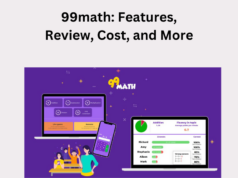College education is moving beyond four year programs founded on the traditional model of four years of education, with summers off. Although this model still has a place in higher education, its fading due to the ever growing number of adult students enrolling in continuing education programs. Adult learners want hybrid classes taught at night and on weekends, along with demanding an increase in online education opportunities.
Adult students seek the convenience of enrolling in college education programs which fit their schedule, eliminating the need to quit their full-time job, or be forced to consider part-time employment. Adult learners need the freedom to continue their lives, along with completing continuing education programs that improve career opportunities and meet financial limitations due to the cost of higher education.
Adult learners seek a wider range of options from colleges for completing their continuing education. For example the ability to complete a four-year degree in three years by attending school year round and more opportunities for part-time education. Because of these desires many adult students complete college courses at multiple colleges, along with completing as many course requirements through online education as feasible.
Distance Education: Meeting Adult Student Needs
Many colleges are providing entire programs or parts of programs online to meet the needs of adult learners. Colleges are also moving further from the traditional model of teaching and learning by offering courses which began multiple times during a semester and school year. This change is caused by the pressure of for-profit institutions that have already moved to this new model.
Colleges offering multiple starting times for courses present them through distance education. Adults prefer this option because online education is typically less expensive, along with providing the necessary convenience that fits their life style and continuing education needs. Distance education also takes advantage of evolving technologies. For example:
-Laptop Computers – for completing courses anywhere there is Internet access.
-Cell Phones – these portable technology tools, such as Blackberry and iPhone, provide access to the Internet for -0adult learners to participate in college courses almost anywhere.
Adult students using these two examples of technology participate in class discussions, turn in assignments, participate in group work, and even communicate with professors during the instructor’s office hours. Distance education supports adult learners by:
-not requiring them to quit their full time employment and miss family events.
-allowing them to remain on the job longer and earn privileges that come with job seniority.
-Community Colleges: Convenience and Affordability
The demand for convenience is being met by community colleges. These two-year institutions provide the general education foundation at an affordable price for adult students intending on continuing their education by earning a bachelor degree. Community colleges also provide certification programs and technical degree programs for adults who do not need a bachelor degree.


















